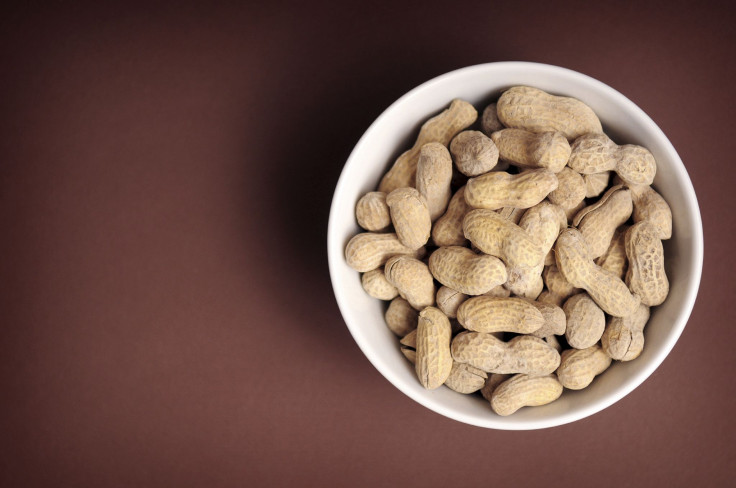Consuming Peanuts During Breastfeeding May Protect Your Infants From Allergies: Study
Can a breastfeeding mother's diet help tackle peanut allergy in infants? A new study finds an association between a mother's peanut consumption and peanut allergy in childhood.
Peanut allergy is the most common form of allergy found in the U.S., affecting more than 2.5 % of children. Researchers have not yet identified the exact cause that triggers the allergy in some children, while not affecting others.
A new study has found that if mothers include a moderate amount of peanuts in their diet during breastfeeding, the infants are more likely to be protected from peanut allergy in childhood.
Peanut allergy triggers unfavorable symptoms when the immune system of a person with the allergy mistakenly identifies peanut proteins as something harmful.
The most severe allergic reaction to peanuts is anaphylaxis, a life-threatening response that includes difficulty in breathing, swelling in the throat, blood pressure drop, pale skin or blue lips, fainting and dizziness.
Here are some common symptoms of peanut allergy to watch out for:
- Vomiting and abdominal cramps
- Indigestion, diarrhea
- Wheezing or difficulty to breath
- Repetitive cough
- Tightness in the throat, hoarse voice
- Weak pulse
- Pale or blue coloring of the skin
- Hives and swelling on tongue/ lips
- Dizziness and confusion
The National Institute for Allergy and Infectious Disease recommend introducing peanut-containing foods to high-risk infants as early as 4-6 months, once they have already started solid foods, after determining it is safe to do so.
This recommendation is based on the theory that although exposure to allergens through the skin causes allergic responses, oral tolerance can be achieved through consistent oral exposure to food allergens.
The new study, however, recommends mothers have moderate amounts of peanuts in their diet while they breastfeed their children.
Researchers tired to understand how maternal exposure to peanuts during pregnancy and lactation impacted the incidence of peanut allergy in the infant. The study group had infants with severe eczema, egg allergy, or both, making them high-risk cohorts for developing peanut allergy.
The team evaluated around 300 infants – a tenth had mothers who ate over five grams of peanuts per week on average, while 70 had less than five grams per week. Around 180 mothers avoided peanuts during lactation.
Researchers found that peanut sensitization and peanut allergy occurred less frequently in infants whose mothers consumed a moderate amount of peanuts while breastfeeding when compared to those who did not take peanuts or consumed a large number of peanuts.
"Moderate consumption (<5 g/w) of peanuts while breastfeeding provides a significant protective effect against peanut sensitization and a noticeable but not statistically significant protective effect against peanut allergy later on in life in high-risk infants in the context of delayed peanut introduction," the researchers wrote.




























